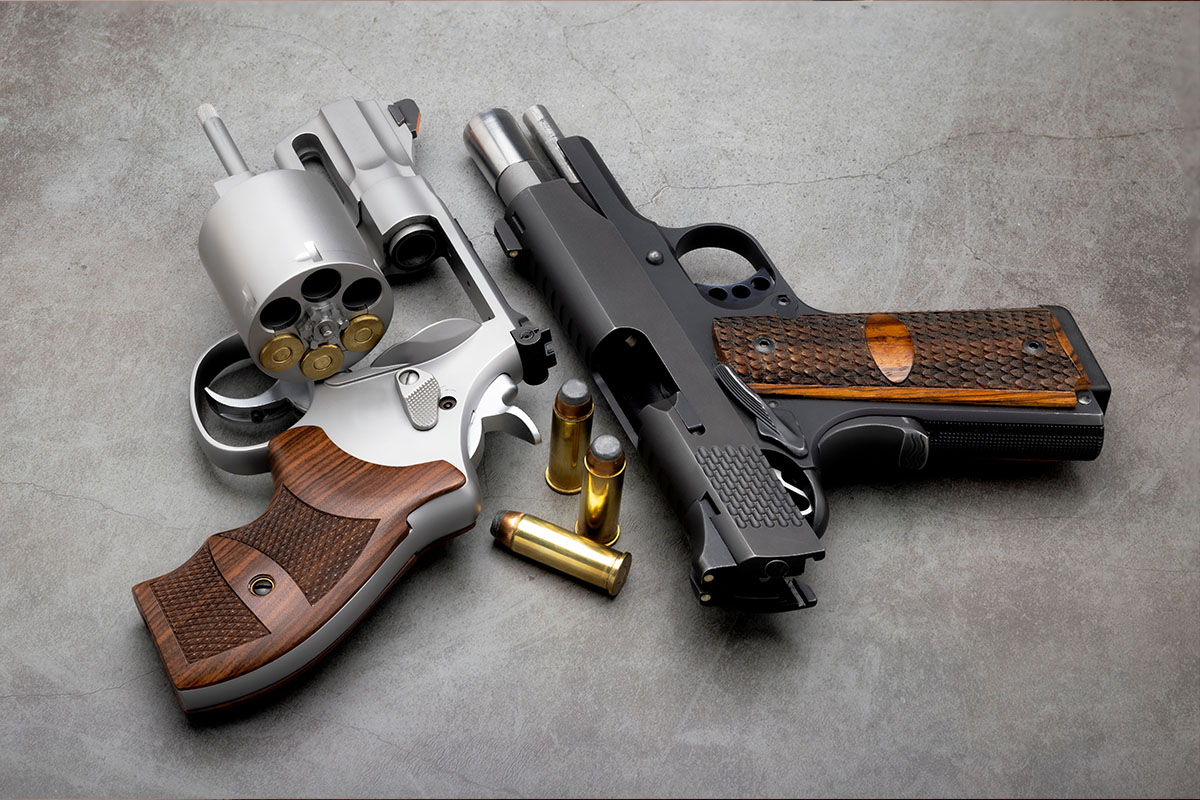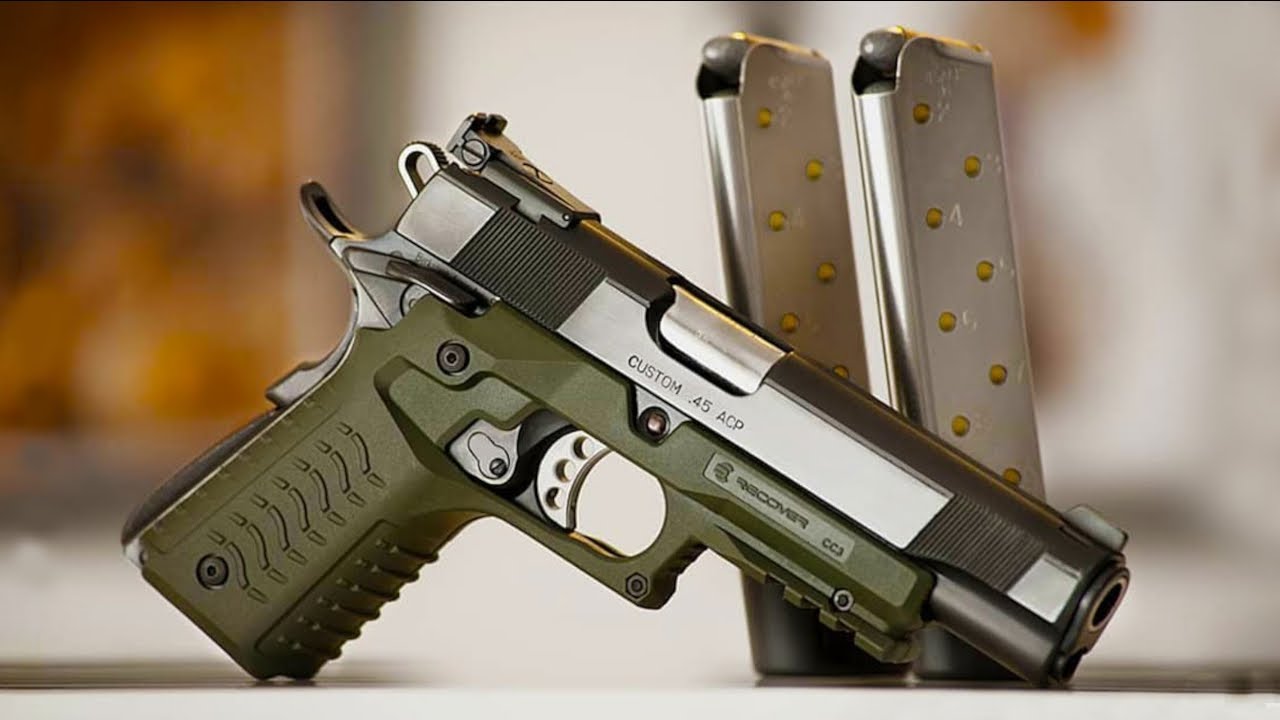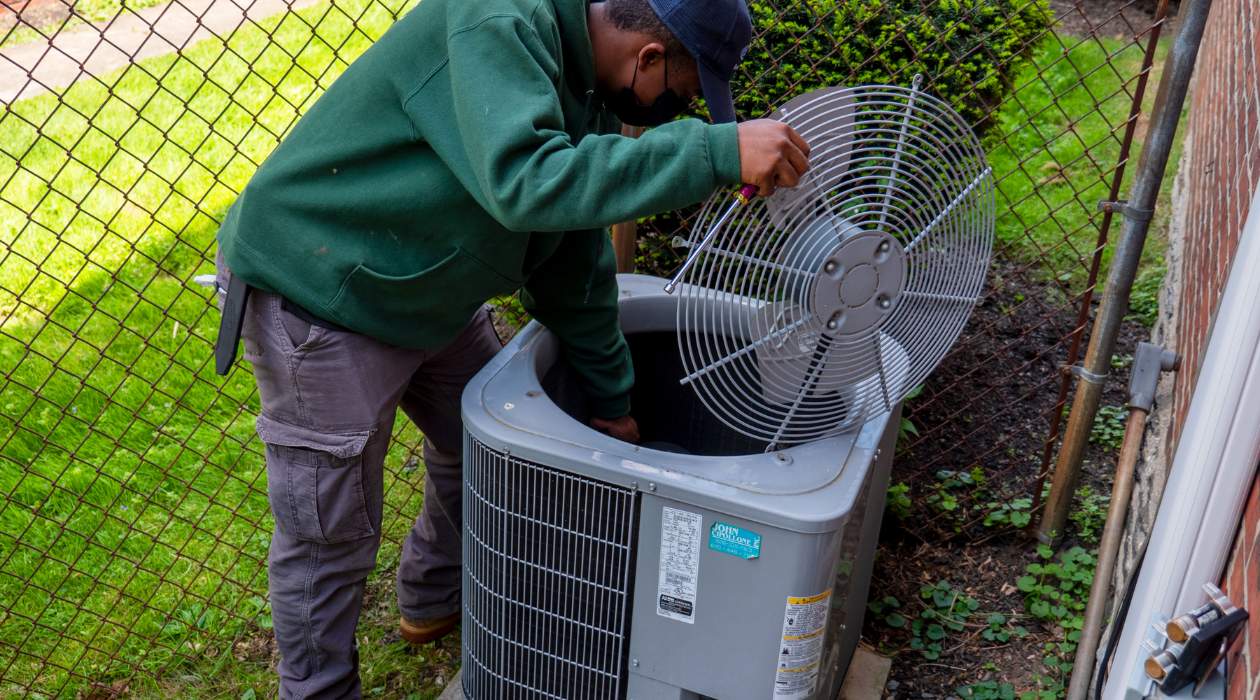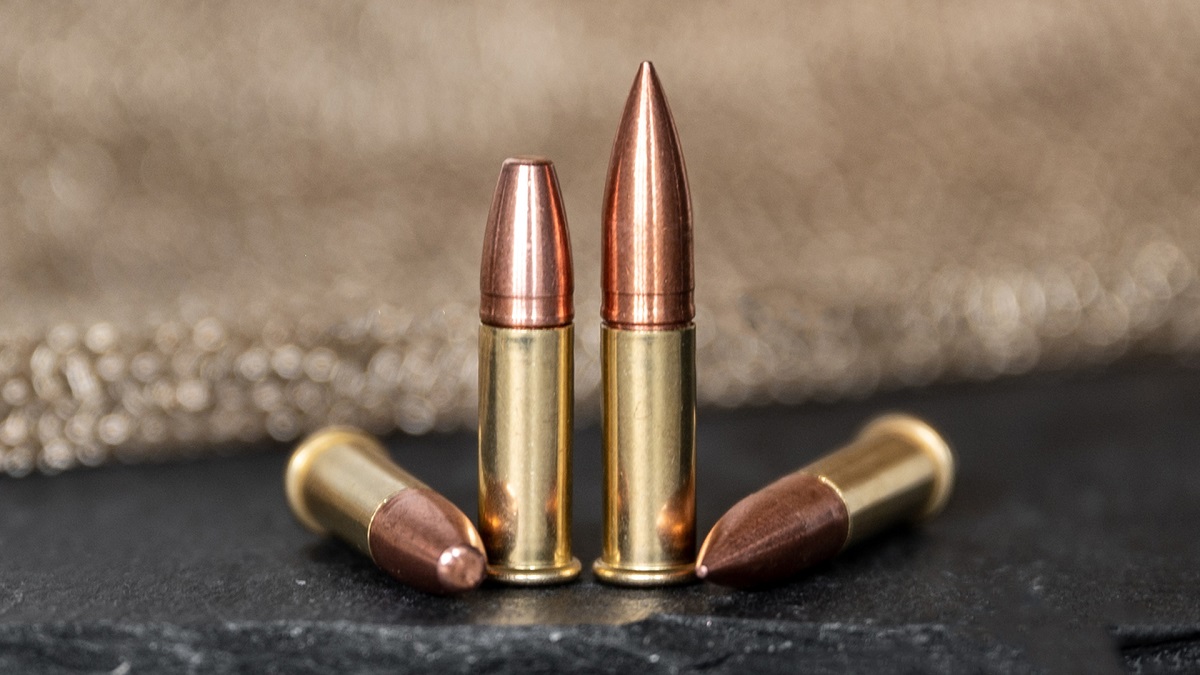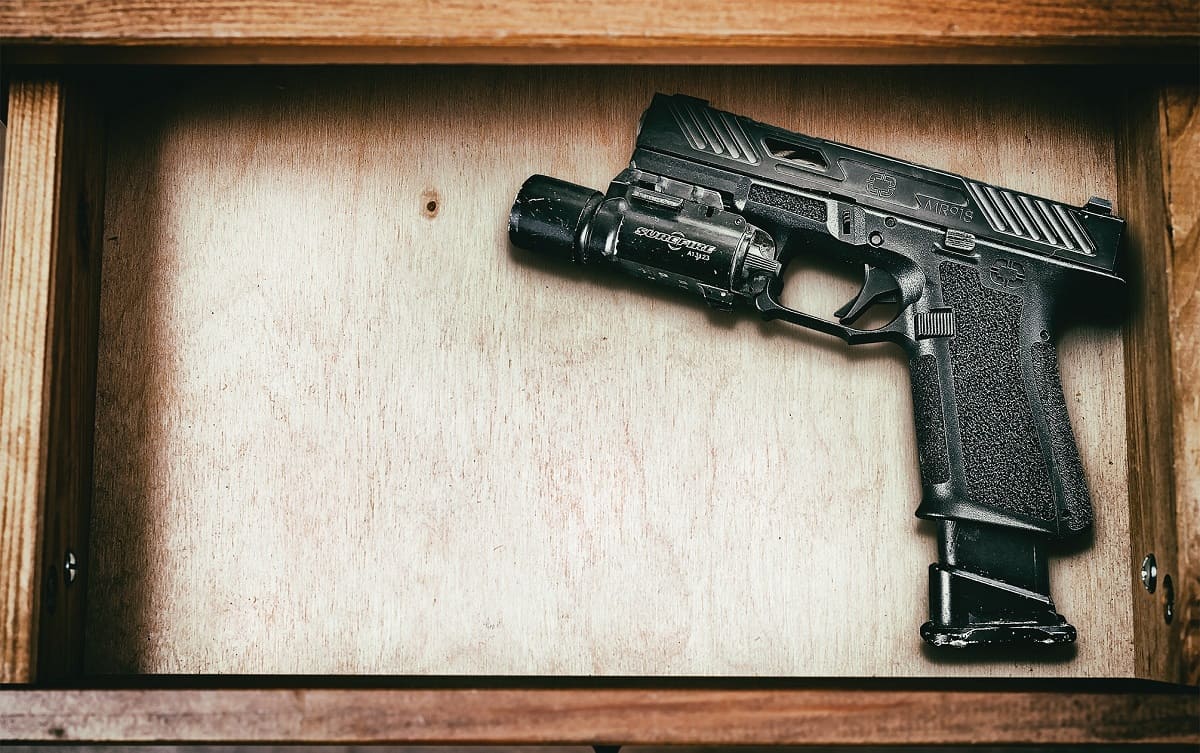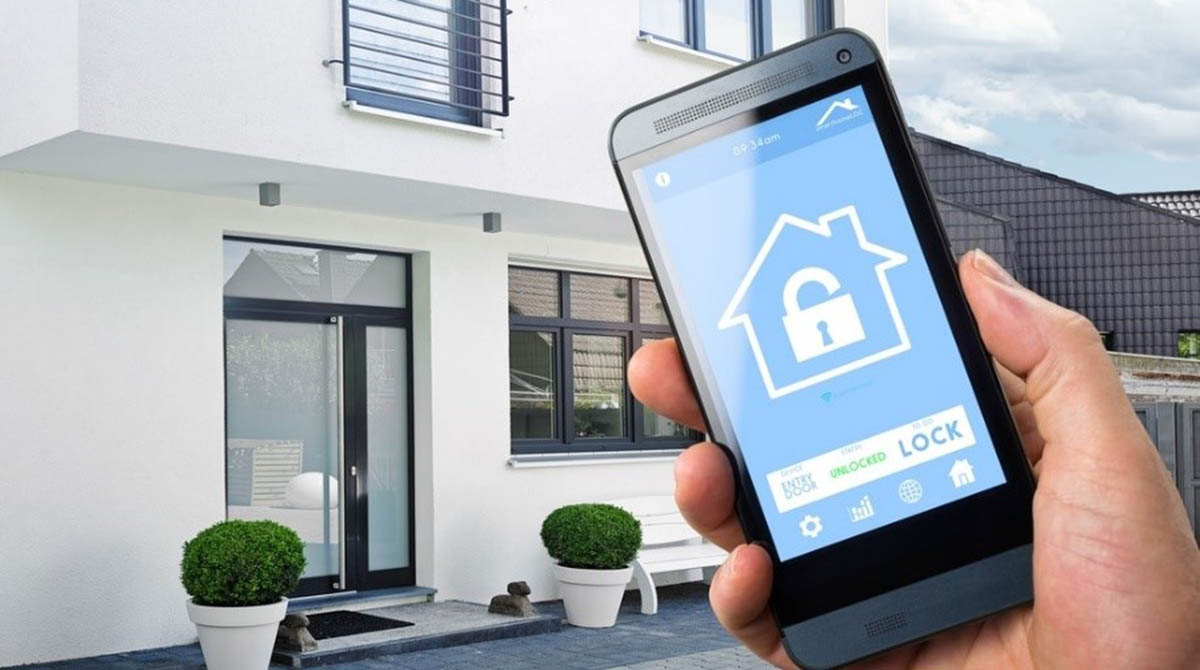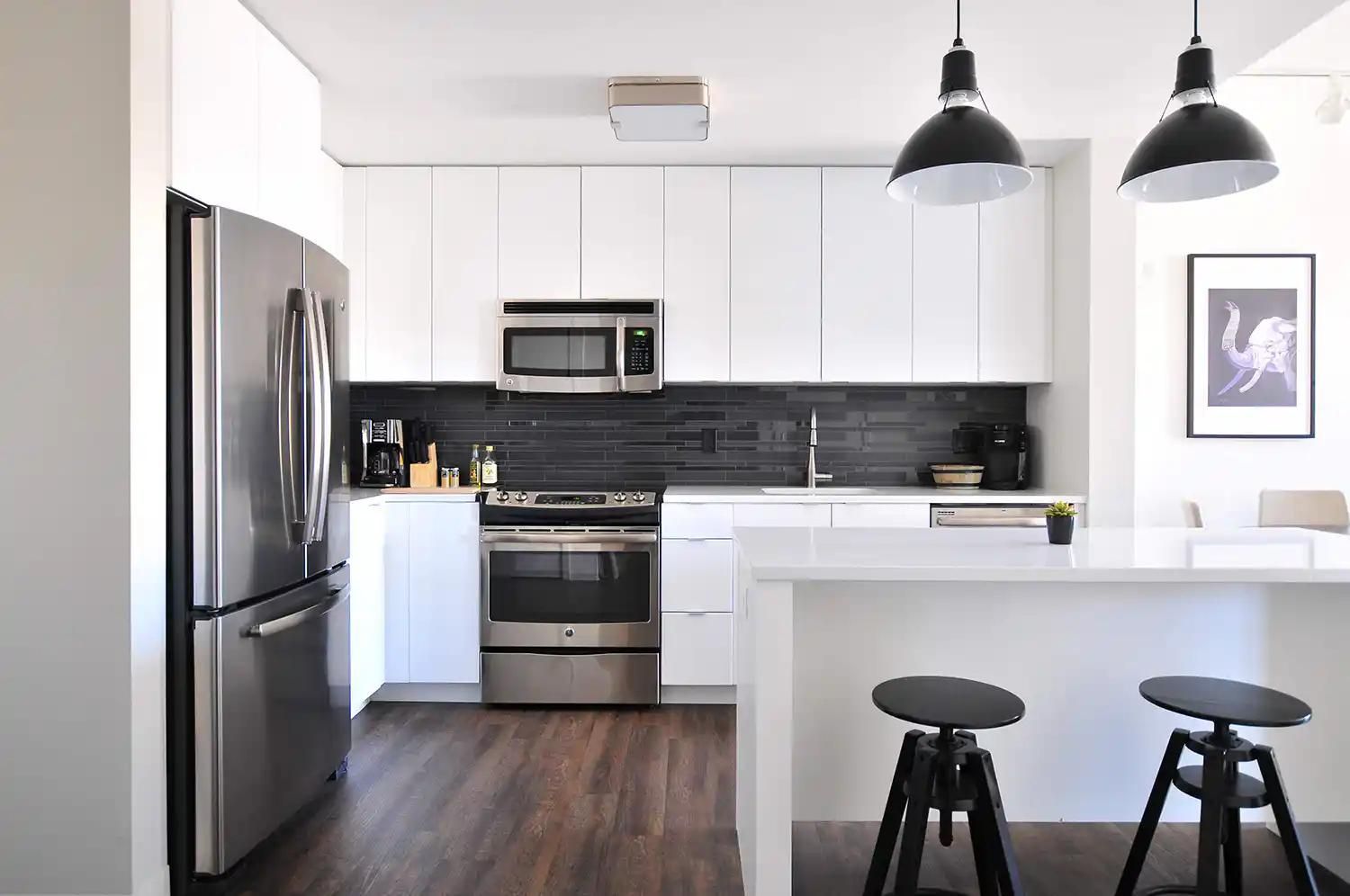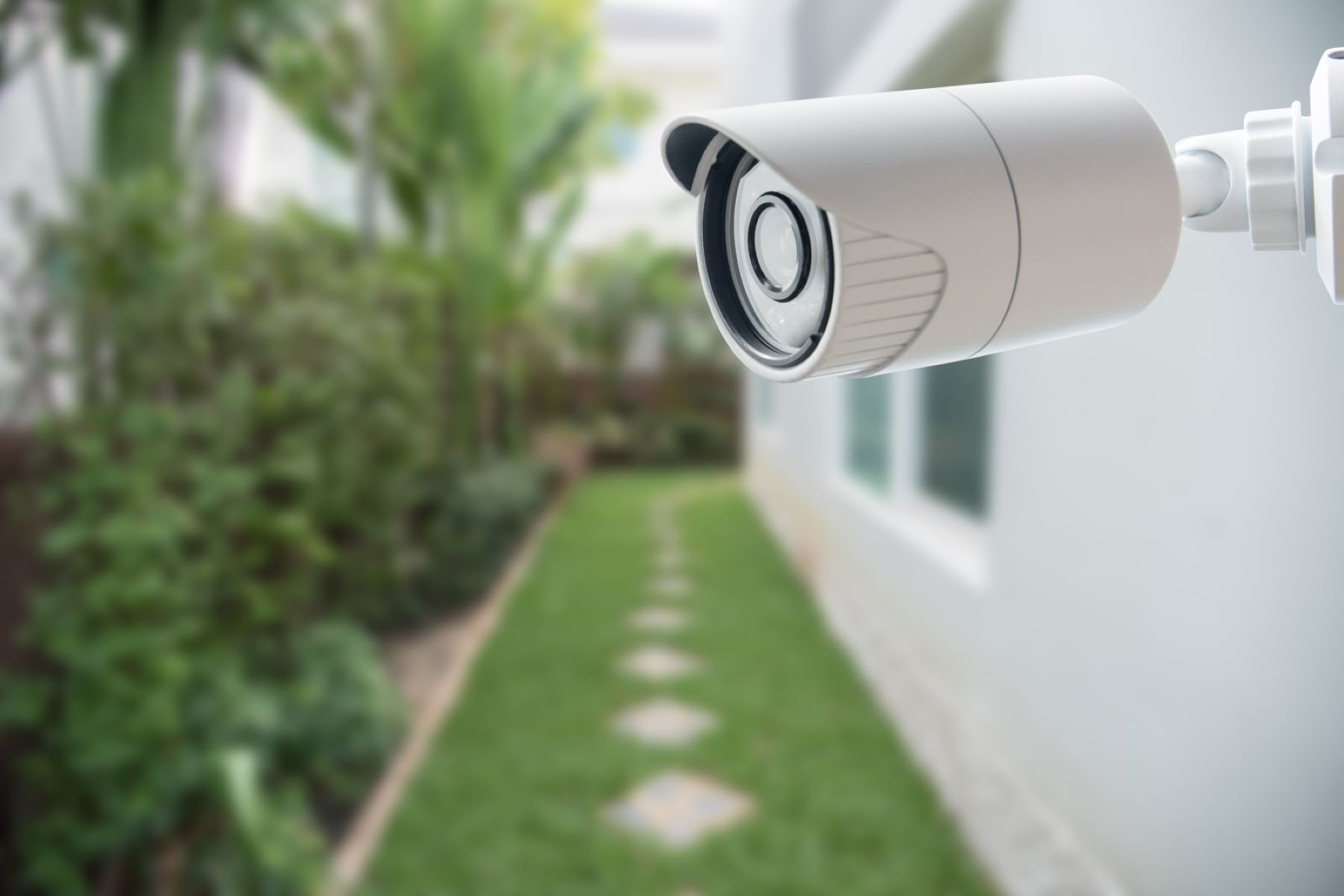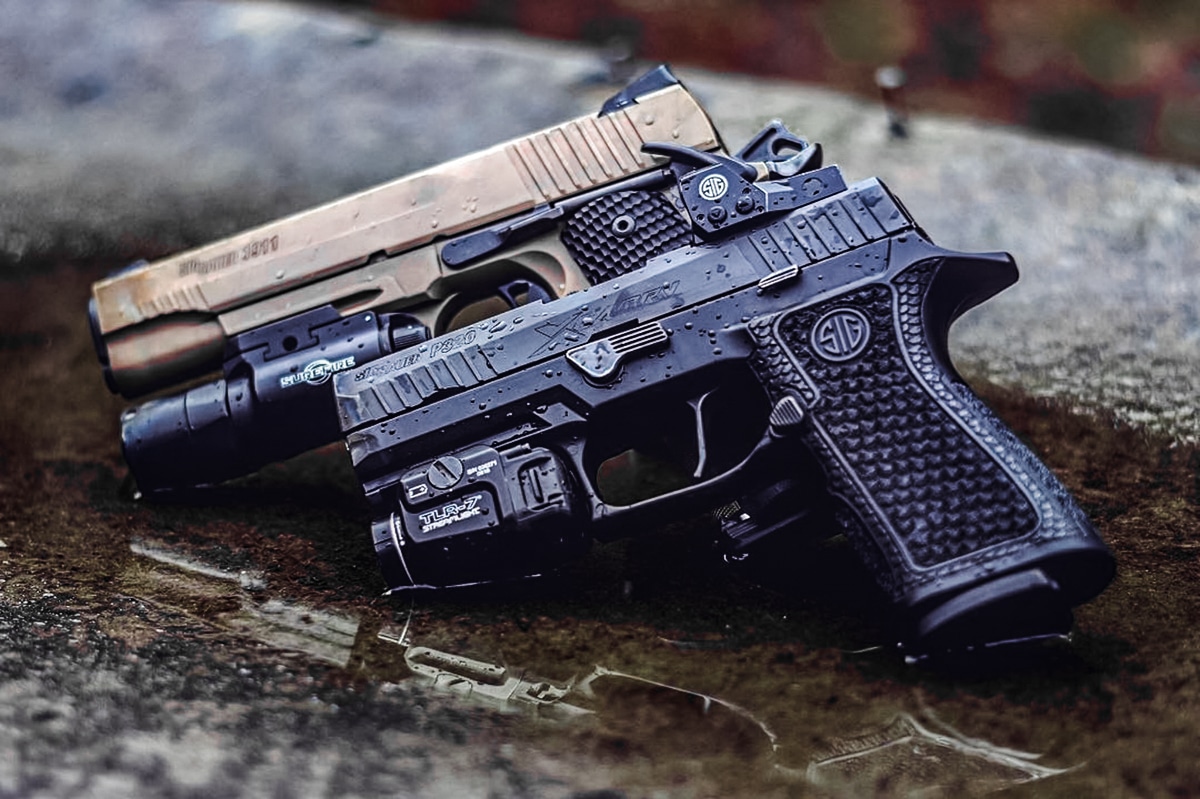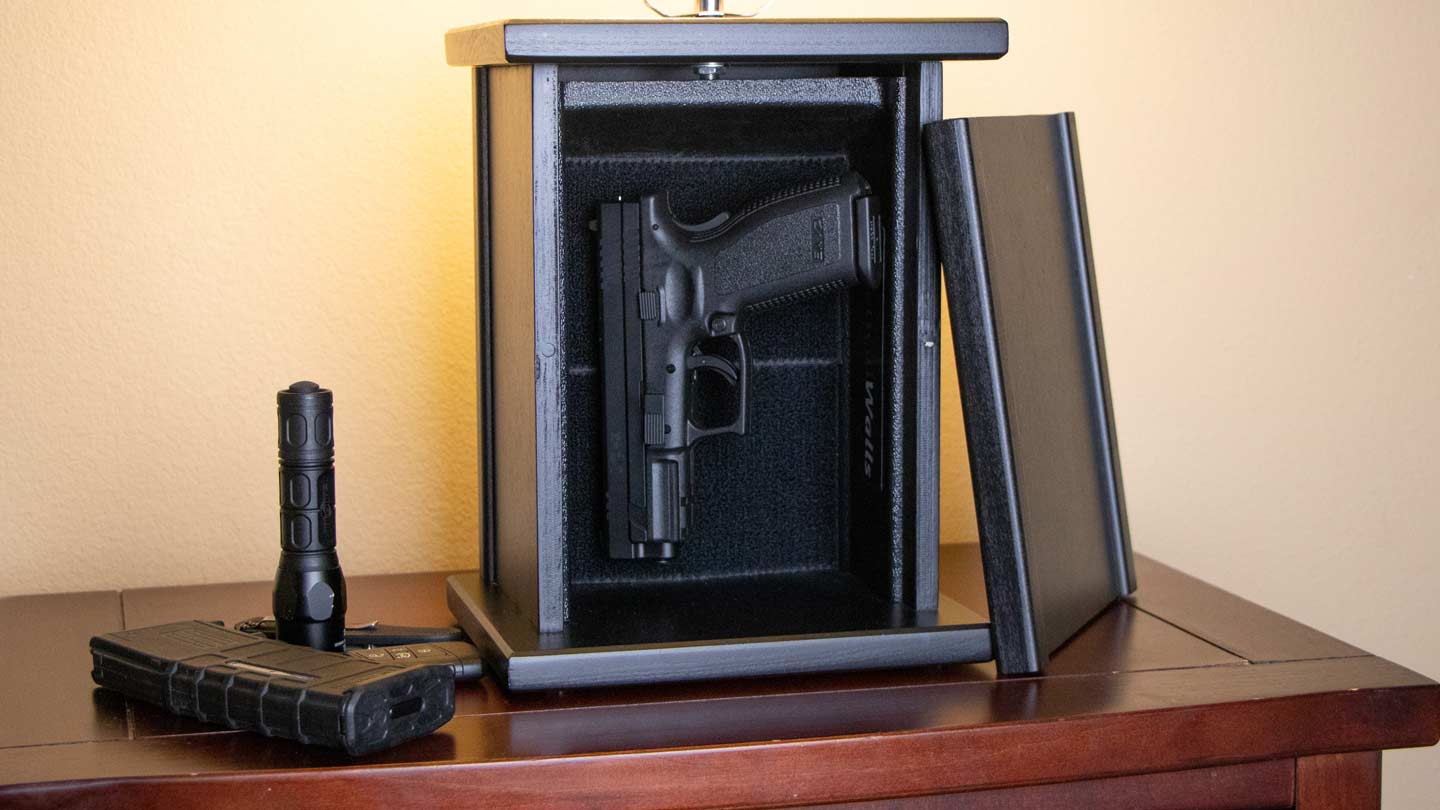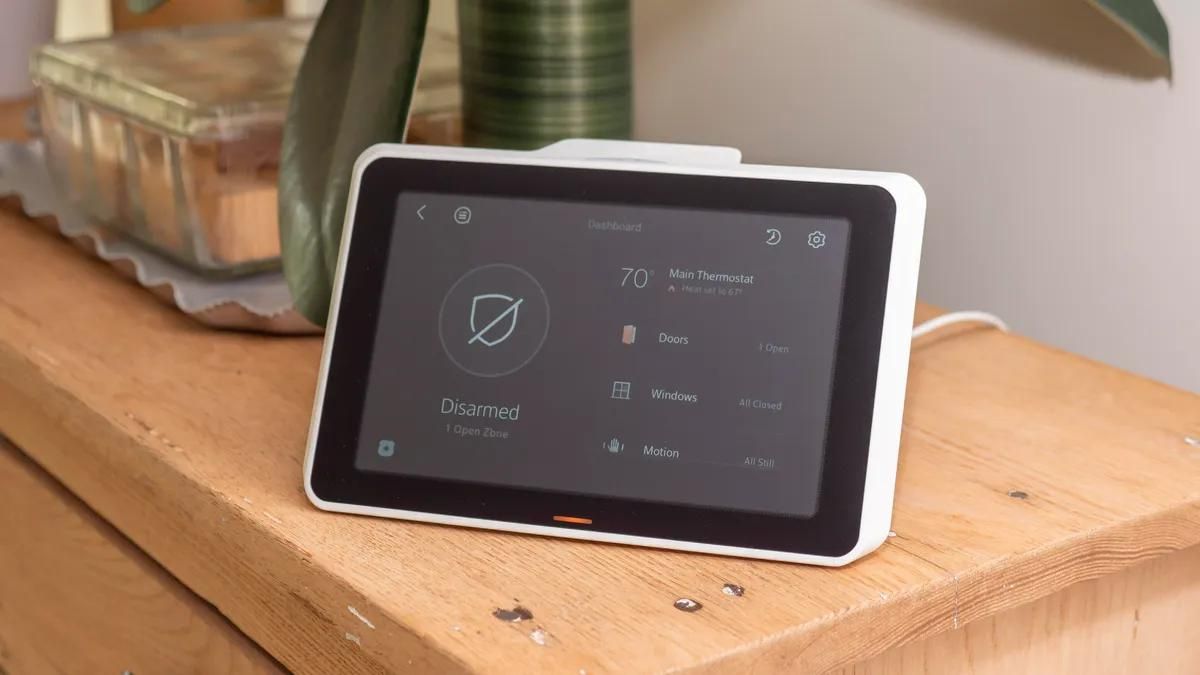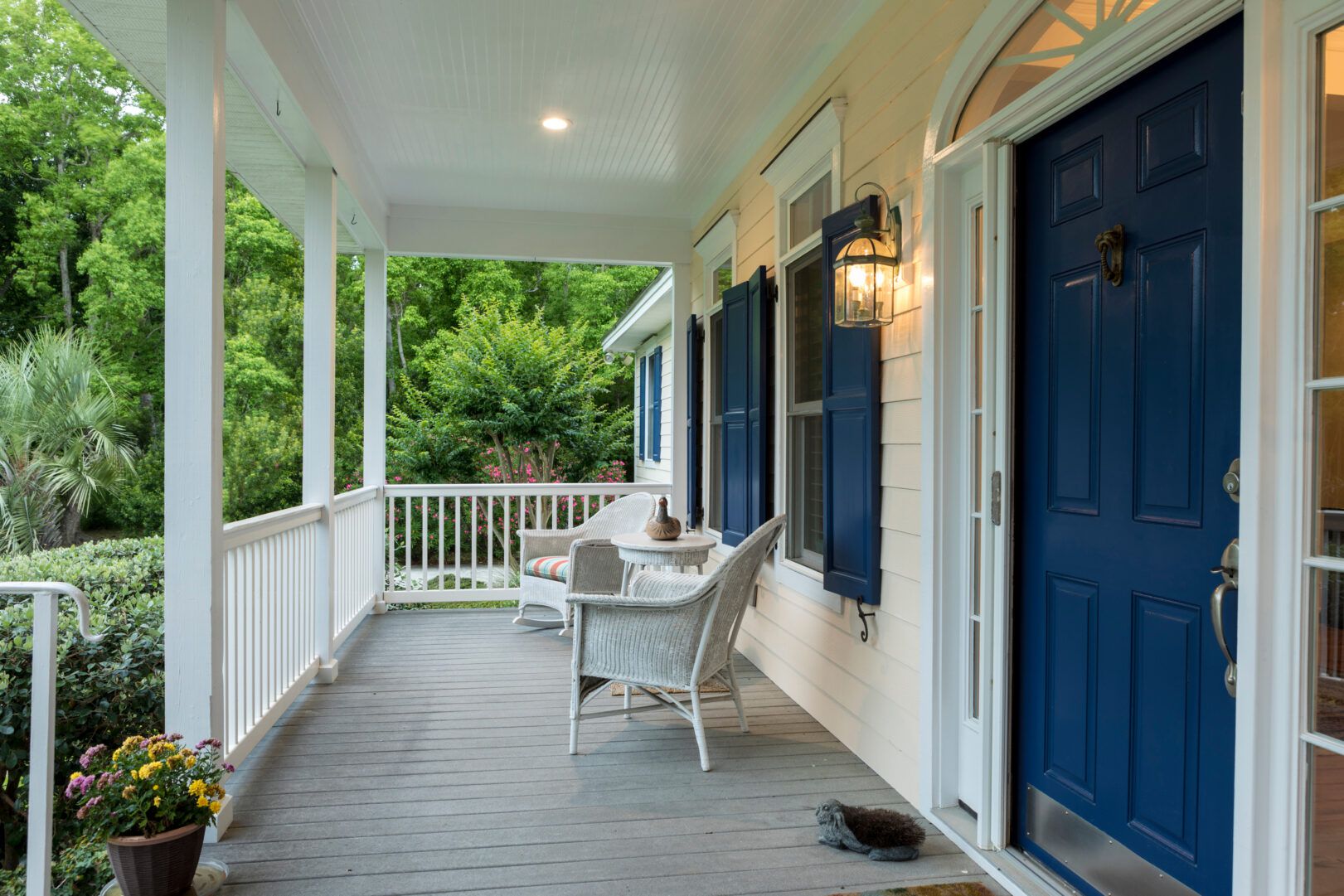Home>Home Security and Surveillance>Why Not A .22 Pistol For Home Protection
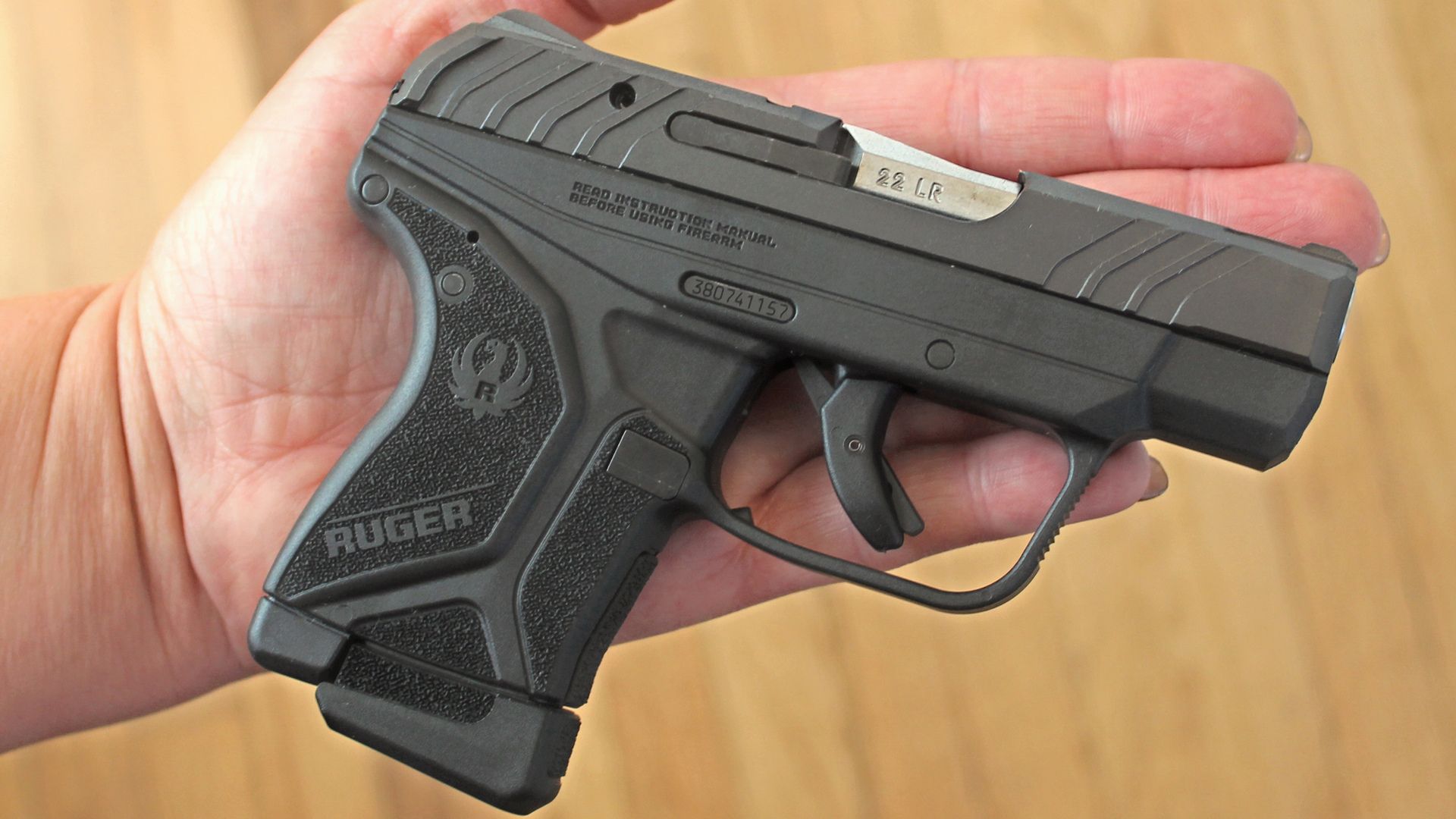

Home Security and Surveillance
Why Not A .22 Pistol For Home Protection
Modified: March 6, 2024
Discover the benefits of using a .22 pistol for home protection and enhance your home security and surveillance with this reliable firearm.
(Many of the links in this article redirect to a specific reviewed product. Your purchase of these products through affiliate links helps to generate commission for Storables.com, at no extra cost. Learn more)
Introduction
When it comes to protecting our homes and loved ones, choosing the right security measures is essential. One popular option for home protection is a .22 pistol. With its compact size and versatility, the .22 pistol can offer a sense of security and peace of mind to homeowners.
In this article, we will explore the advantages of using a .22 pistol for home protection, as well as its limitations. We will also discuss alternative options that homeowners should consider before making a decision. By understanding the pros and cons of using a .22 pistol for home security, you can make an informed choice that best meets your individual needs and circumstances.
Whether you are a first-time gun owner or an experienced firearm enthusiast, it is crucial to thoroughly evaluate the effectiveness and appropriateness of the .22 pistol for your home protection needs. Let’s dive in and explore the world of home security with the .22 pistol.
Key Takeaways:
- A .22 pistol offers compactness, low recoil, and affordability for home protection. However, its limited stopping power and potential reliability issues should be carefully considered before making a decision.
- Alternative options like the 9mm pistol, shotgun, or non-lethal means of self-defense provide increased stopping power and expanded range, offering viable alternatives to consider for home protection.
Read more: How To Choose A Home Defense Pistol
The Statistics of Home Protection
Before delving into the advantages and limitations of using a .22 pistol for home protection, it is essential to understand the current landscape of home security. Home invasions and burglaries are unfortunate realities that many homeowners face, and having a reliable form of protection is crucial.
According to the Federal Bureau of Investigation (FBI), there were an estimated 1,117,696 burglaries reported in the United States in 2019. This statistic underscores the need for homeowners to take proactive steps in safeguarding their properties.
While security systems and alarms provide a level of deterrence, having a personal firearm for home defense can offer an added layer of protection. However, it is important to note that proper training and adherence to local laws and regulations are paramount.
Now that we have a clear understanding of the statistics surrounding home security, let us explore the advantages and limitations of using a .22 pistol for home protection.
Advantages of Using a .22 Pistol for Home Protection
When considering a firearm for home protection, the .22 pistol offers several advantages that make it an appealing choice for many homeowners. Here are some of its key benefits:
- Compact and Lightweight: The .22 pistol is known for its compact size and lightweight design, making it easy to handle and maneuver in tight spaces. This makes it an ideal choice for homeowners who may have limited experience with firearms or prefer a weapon that is easy to control.
- Low Recoil: Compared to larger caliber handguns, the .22 pistol has minimal recoil, meaning that the shooter experiences less kickback when firing. This can be especially beneficial for individuals with limited upper body strength or those who want to maximize accuracy during high-stress situations.
- Cost-effective Ammunition: Another advantage of the .22 pistol is the affordability of its ammunition. In general, .22 caliber bullets are less expensive than those used in larger handguns or rifles. This allows homeowners to practice more frequently without breaking the bank. Regular practice is crucial for developing and maintaining shooting skills.
- Versatility: The .22 pistol is a versatile firearm that can serve multiple purposes. Whether it’s for home protection, target shooting, or even small game hunting, the .22 pistol can be a reliable tool. Its versatility makes it an attractive choice for those looking for a multifunctional firearm.
- Minimal Overpenetration Risk: Overpenetration, or the ability of a bullet to penetrate through walls and potentially harm unintended targets, is a valid concern for homeowners. The .22 pistol, due to its lower muzzle velocity compared to larger calibers, has a reduced risk of overpenetration. This can provide homeowners with added peace of mind, knowing that the likelihood of collateral damage is minimized.
These advantages make the .22 pistol a viable option for homeowners who prioritize ease of use, affordability, and versatility in their choice of a home protection firearm. However, it is important to be aware of the limitations associated with the .22 pistol as well, which we will explore next.
A .22 pistol may not have enough stopping power for home defense. Consider a larger caliber like 9mm for better protection.
Limitations of a .22 Pistol for Home Protection
While there are advantages to using a .22 pistol for home protection, it is essential to consider the limitations before making a decision. Here are some key factors to keep in mind:
- Limited Stopping Power: One of the primary concerns with using a .22 pistol for home defense is its limited stopping power. The small size and lower energy of the .22 caliber bullet may not have the same immediate stopping effect as larger caliber handguns. This could be a detriment in situations where an assailant is highly determined or under the influence of drugs.
- Reliability and Malfunction: While modern .22 pistols have improved in terms of reliability, there is still a higher likelihood of malfunctions compared to larger caliber handguns. Failure to feed, extract, or eject cartridges can occur, which can be problematic in a self-defense scenario. Regular maintenance and proper ammunition selection can mitigate these issues to a certain extent.
- Range and Accuracy: The effective range of a .22 pistol is relatively shorter compared to larger caliber firearms. While this may not be a concern in most home defense situations, it is essential to recognize that the range of engagement could be limited, especially in larger properties or situations where longer distances may be encountered.
- Perception and Deterrence: Another consideration is the psychological factor of deterrence. While the presence of any firearm can act as a deterrent, the .22 pistol may not have the same intimidating effect as larger, more powerful firearms. In high-stress situations, potential intruders may not be as deterred by the sight of a smaller caliber handgun.
- Legal Considerations: It is crucial to familiarize yourself with local laws and regulations regarding the use of firearms for home protection. Some areas may have restrictions or specific requirements for owning a .22 pistol or any firearm for self-defense purposes. Understanding and complying with these laws is essential to ensure you are legally and responsibly equipped to protect your home and loved ones.
Considering these limitations, it is necessary to weigh the advantages and disadvantages of using a .22 pistol for home protection. Depending on your individual circumstances, you may find that alternative options may better suit your needs.
Considering Alternative Options
While the .22 pistol has its advantages, it is important to explore alternative options for home protection to ensure you make the most informed choice for your specific needs. Here are a few alternatives to consider:
- 9mm Pistol: The 9mm pistol is a popular choice for home defense due to its larger caliber and increased stopping power compared to a .22 pistol. It offers a good balance between recoil, accuracy, and firepower. However, it is crucial to receive proper training and practice with the 9mm pistol to ensure optimal performance.
- Shotgun: Shotguns, such as 12-gauge or 20-gauge models, are renowned for their stopping power and versatility. The spread of pellets can be advantageous in close-quarters situations, providing a wider target area and increasing the chance of hitting an intruder. Shotguns, however, require practice to handle effectively, as they have more recoil than handguns.
- AR-15 Rifle: While it may seem unconventional to consider a rifle for home protection, the AR-15 platform offers several advantages. With its greater accuracy, longer effective range, and higher magazine capacity, it can be a reliable option for homeowners who are comfortable with firearms and seek optimal defensive capabilities.
- Non-Lethal Options: In situations where lethal force may not be necessary or is not desired, non-lethal options such as pepper spray, stun guns, or bean bag shotguns can provide an alternative means of self-defense. These options can incapacitate an intruder without causing permanent harm.
Each of these alternative options has its own set of advantages and considerations. It is important to conduct thorough research, receive proper training, and consider factors like comfort, recoil, and usability before making a decision.
Ultimately, the most effective home protection weapon is one that you are comfortable and proficient with, enabling you to respond quickly and appropriately in a high-stress situation. Regular practice, adhering to legal requirements, and understanding the responsibilities of firearm ownership are crucial regardless of the option you choose.
Read more: What Kind Of Sights For Home Defense Pistol
Conclusion
Choosing the right means of home protection is a decision that should not be taken lightly. In this article, we explored the advantages and limitations of using a .22 pistol for home defense, as well as alternative options to consider.
The .22 pistol offers benefits such as compactness, low recoil, affordability, versatility, and reduced risk of overpenetration. These advantages make it an attractive choice for homeowners seeking a reliable and accessible firearm for self-defense. However, its limitations, including limited stopping power and potential reliability issues, must be considered when making a decision.
Alternative options like the 9mm pistol, shotgun, or even non-lethal means of self-defense present viable alternatives to consider. These options offer increased stopping power, expanded range, or non-lethal means of incapacitation, depending on your needs and comfort level.
Regardless of the choice you make, it is crucial to prioritize safety, responsibility, and legal compliance. Regular training, adherence to local laws, and safe storage practices are essential components of responsible firearm ownership.
In the end, the best choice for home protection varies from person to person. It is important to evaluate your own needs, skill level, comfort, and legal requirements before making a decision. Seeking professional guidance from firearm instructors and home security experts can also provide valuable insights to help you make an informed choice.
Remember, the key to effective home protection lies not only in the choice of weapon but also in developing a comprehensive security plan that includes measures such as alarm systems, reinforced doors, proper lighting, and neighborhood watch programs.
Ultimately, it is the synergy of these elements that will contribute to a safe and secure home for you and your loved ones.
Frequently Asked Questions about Why Not A .22 Pistol For Home Protection
Was this page helpful?
At Storables.com, we guarantee accurate and reliable information. Our content, validated by Expert Board Contributors, is crafted following stringent Editorial Policies. We're committed to providing you with well-researched, expert-backed insights for all your informational needs.
